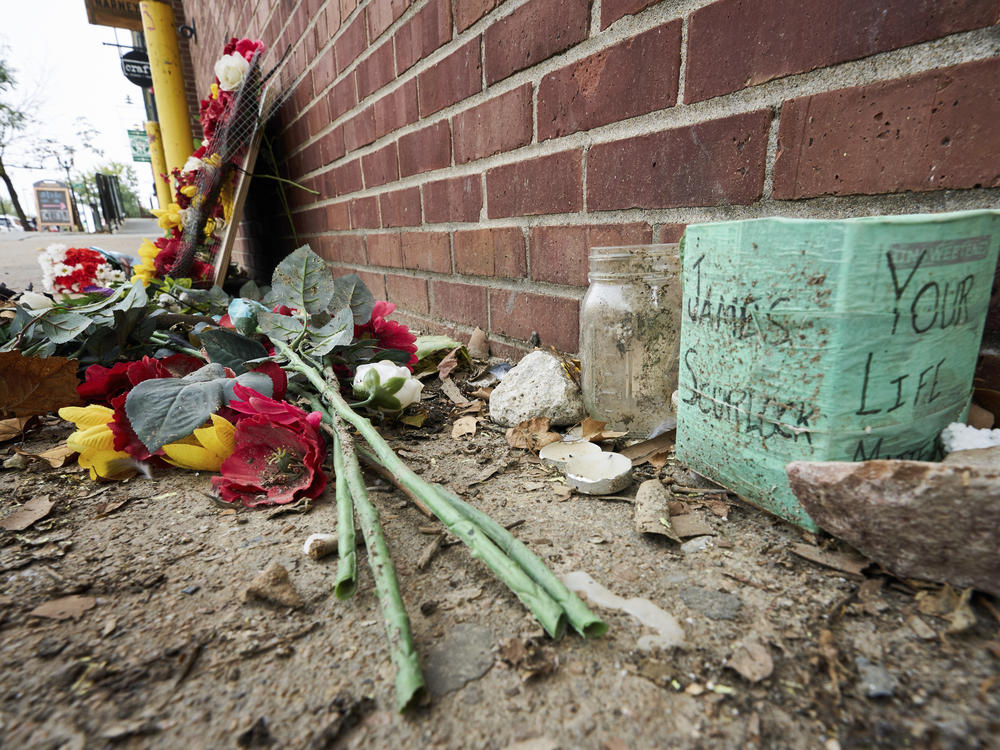Section Branding
Header Content
Omaha Bar Owner Has Died By Suicide After He Was Charged In Shooting Of Black Man
Primary Content
A white Omaha, Neb., bar owner who was recently indicted for his role in the fatal shooting of a young Black man in May during racial justice protests has died by suicide, according to the man's attorneys.
A grand jury returned an indictment last week against Jake Gardner, 38, more than three months after he shot and killed James Scurlock, 22. The shooting took place during a chaotic night of protests in Omaha following the police killing of George Floyd in Minneapolis a few days prior.
Lawyers for Gardner said their client, an Iraq War veteran, had received death threats, had hired a bodyguard and had been living in California since the shooting.
The attorneys told reporters that he had recently driven to Oregon because of the wildfires and was scheduled to return to Omaha to turn himself in Sunday to face criminal charges.
An alert by the Hillsboro, Ore., police department on Sunday said officers were responding to reports that a body was found outside a medical clinic around 12:20 p.m. local time.
"This is an extremely sad day. A day that didn't have to happen," attorney Stu Dornan said at a news conference on Sunday. "A day that another vet took his own life at his own hand."
Dornan added that his client, who had two traumatic brain injuries he sustained during two tours of duty in Iraq, was "shook up" by the charges. He had also been evicted from the building he'd operated his bars from.
Gardner's death comes less than a week after a special prosecutor said a grand jury was charging him with four criminal counts: manslaughter, attempted first-degree assault, terroristic threats and use of a firearm in connection with a felony.
His attorneys reiterated that Gardner had cooperated with law enforcement during the investigation, and they expressed regret that they would not have the opportunity to present a defense in what they described as an unambiguous case.
"I want to make very clear that Mr. Gardner was coming back to Omaha. And I want to make it very clear that this was a clear case of self-defense," Dornan said.
After reviewing video footage of the encounter between Gardner and Scurlock back in May, Douglas County Attorney Don Kleine initially ruled the shooting of Scurlock an act of self-defense. As protests continued in the city, Kleine later agreed to call a grand jury to take a second look at the case, even as he stood by his original ruling.
Scurlock family attorney Justin Wayne, who is also a state senator, told the Omaha World-Herald that it would not be appropriate to comment so soon after Gardner's death. He said the family is still processing what it means for their fight for justice in the case. The newspaper noted that if Gardner had been convicted, he could have faced up to 95 years in prison.
The grand jury investigation and resulting trial had been expected to make clearer the events of that tumultuous and racially charged night in downtown Omaha. What is known comes largely from grainy surveillance and eyewitness video showing a heated verbal exchange between Gardner and Scurlock and his friends outside Gardner's businesses, The Gatsby and The Hive bars.
Gardner told authorities that he said to Scurlock and his friends, "Keep the f*** away from me" and appeared to lift his shirt to show he was armed. At one point, the white bar owner fired what the county attorney later described as two "warning shots" that sent some people running.
Not long after, Scurlock and Gardner were apparently in a scuffle on the ground that lasted roughly 20 seconds. Then Gardner fired a shot that killed Scurlock.
If you or someone you know is having suicidal thoughts, reach out for help. The National Suicide Prevention Lifeline is open 24 hours a day at 1-800-273-8255.
Copyright 2020 NPR. To see more, visit https://www.npr.org.

